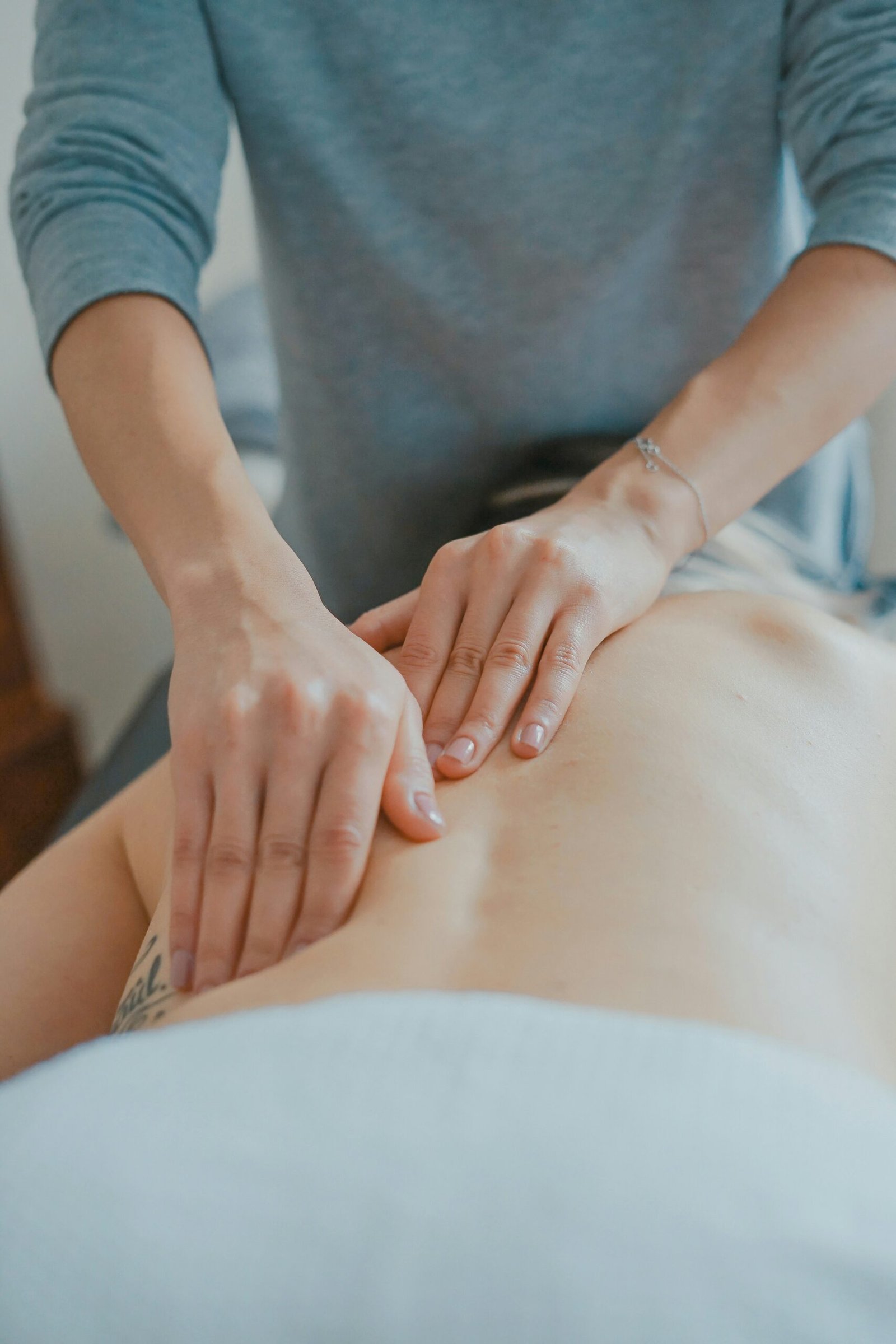“Calgary Wellness Expo Highlights Benefits of Massage Therapy for Overall Health”
Introduction
The Calgary Wellness Expo is an annual event that brings together health and wellness professionals, experts, and enthusiasts to showcase the latest trends and advancements in the field. One of the key highlights of this event is the emphasis on the benefits of massage therapy for overall health. In this blog post, we will explore the various ways in which massage therapy can contribute to our well-being and enhance our overall quality of life.
Massage therapy has been practiced for centuries and is known for its ability to promote relaxation and reduce stress. However, its benefits extend far beyond just relaxation. Research has shown that regular massage therapy can have a positive impact on our physical, mental, and emotional well-being.
From a physical perspective, massage therapy can help to relieve muscle tension and improve circulation. It can also help to reduce pain and inflammation, making it an effective treatment for conditions such as arthritis and fibromyalgia. Additionally, massage therapy can help to improve flexibility and range of motion, making it beneficial for athletes and those recovering from injuries.
On a mental level, massage therapy can help to reduce anxiety and depression. The soothing touch of a massage therapist can promote the release of endorphins, which are the body’s natural feel-good chemicals. This can help to improve mood and create a sense of well-being. Massage therapy has also been found to improve sleep quality, which is essential for overall mental health.
Emotionally, massage therapy can provide a safe and nurturing space for individuals to relax and let go of stress and tension. It can help to reduce feelings of overwhelm and promote a sense of calm and balance. The power of human touch can also foster a sense of connection and intimacy, which is important for emotional well-being.
In addition to these physical, mental, and emotional benefits, massage therapy can also contribute to our overall quality of life. By taking the time to care for ourselves through regular massage therapy, we are prioritizing our well-being and investing in our long-term health. This can lead to increased productivity, improved relationships, and a greater sense of fulfillment and happiness.
In conclusion, massage therapy is not just a luxury or indulgence; it is a valuable tool for promoting overall health and well-being. Whether you are seeking relief from physical pain, looking to reduce stress and anxiety, or simply wanting to enhance your quality of life, massage therapy can be a powerful ally. So, why not treat yourself to a massage and experience the many benefits it has to offer?
The Importance of Massage Therapy
Massage therapy has been practiced for centuries and is known for its ability to promote relaxation, reduce stress, and alleviate muscle tension. However, its benefits go beyond just providing a momentary escape from our busy lives. Regular massage therapy can have a profound impact on our physical, mental, and emotional well-being.
One of the primary physical benefits of massage therapy is its ability to improve circulation. During a massage, pressure is applied to the muscles, which helps to increase blood flow to the area. This increased circulation not only delivers oxygen and nutrients to the muscles but also helps to remove waste products and toxins. As a result, massage therapy can help to reduce muscle soreness and promote faster recovery after physical activity.
In addition to improving circulation, massage therapy can also help to relieve pain and discomfort. The pressure applied during a massage can help to release tension in the muscles and reduce inflammation. This can be particularly beneficial for individuals suffering from chronic pain conditions such as arthritis or fibromyalgia. By targeting specific areas of pain, massage therapy can provide much-needed relief and improve overall quality of life.
Furthermore, massage therapy has been shown to have a positive impact on mental health. The soothing touch of a massage therapist can help to calm the mind and promote a sense of relaxation. This can be especially beneficial for individuals struggling with anxiety or depression. Regular massage therapy sessions can provide a safe and nurturing environment for individuals to unwind and release emotional tension.
Moreover, massage therapy can also improve sleep quality. Many individuals struggle with insomnia or have difficulty falling asleep due to stress or anxiety. Massage therapy can help to relax the body and mind, making it easier to fall asleep and stay asleep throughout the night. By promoting better sleep, massage therapy can have a significant impact on overall energy levels and daytime productivity.
Overall, the importance of massage therapy cannot be overstated. Its ability to promote physical relaxation, reduce pain, improve mental well-being, and enhance sleep quality makes it a valuable tool for maintaining overall health and wellness. Whether you are seeking relief from a specific ailment or simply looking to unwind and rejuvenate, incorporating regular massage therapy into your self-care routine can have lasting benefits.
Physical Benefits of Massage Therapy
Massage therapy is widely recognized for its physical benefits. The manipulation of soft tissues, such as muscles, tendons, and ligaments, can help improve blood circulation, reduce inflammation, and promote the release of endorphins, which are natural painkillers produced by the body. These effects can lead to a range of physical benefits, including:
- Relief from chronic pain: Massage therapy can be an effective treatment for conditions such as back pain, arthritis, and fibromyalgia. The targeted pressure and manipulation of the affected areas can help alleviate tension, reduce muscle spasms, and improve overall pain management. In fact, many individuals who suffer from chronic pain find that regular massage therapy sessions provide long-lasting relief and improve their quality of life.
- Improved flexibility and range of motion: By targeting specific muscle groups, massage therapy can help loosen tight muscles and improve flexibility. This is especially beneficial for individuals who engage in physical activities or have sedentary lifestyles. Regular massage sessions can help prevent muscle imbalances, increase joint mobility, and enhance overall body movement.
- Enhanced athletic performance: Athletes often turn to massage therapy to aid in muscle recovery, prevent injuries, and improve overall performance. Massage techniques such as deep tissue massage and sports massage can help break down scar tissue, reduce muscle soreness, and increase blood flow to the muscles. This not only speeds up the healing process but also helps athletes maintain peak physical condition and perform at their best.
- Boosted immune system: Studies have shown that regular massage therapy can help increase the activity of natural killer cells, which play a vital role in the body’s immune response. The stimulation of these cells can strengthen the immune system, making individuals less susceptible to illnesses and infections. Additionally, massage therapy can reduce stress levels, which can further enhance immune function and promote overall well-being.
Overall, the physical benefits of massage therapy are numerous and can greatly improve an individual’s health and well-being. Whether it’s relieving chronic pain, improving flexibility, enhancing athletic performance, or boosting the immune system, massage therapy offers a holistic approach to physical wellness.
Mental and Emotional Benefits of Massage Therapy
In addition to its physical benefits, massage therapy can also have a positive impact on our mental and emotional well-being. The power of touch and the therapeutic environment created during a massage session can help promote relaxation, reduce anxiety, and improve our overall mood. Some of the mental and emotional benefits of massage therapy include:
- Stress reduction: Massage therapy has been shown to lower levels of cortisol, the hormone associated with stress, and increase the production of serotonin and dopamine, which are neurotransmitters that promote feelings of relaxation and happiness.
- Improved sleep quality: Many individuals who receive regular massage therapy report better sleep patterns and a decrease in insomnia symptoms. This improvement in sleep quality can have a significant impact on mental and emotional well-being, as adequate sleep is crucial for cognitive function, emotional regulation, and overall mood stability.
- Relief from symptoms of depression and anxiety: Massage therapy can help reduce feelings of depression and anxiety by promoting relaxation and providing a sense of comfort and support. The physical touch and soothing environment of a massage session can help individuals feel nurtured and cared for, which can alleviate symptoms of these mental health conditions.
- Increased mindfulness: The focused attention and sensory experience of a massage session can help individuals become more present and mindful, allowing them to let go of worries and distractions. This increased mindfulness can have a profound impact on mental well-being, as it allows individuals to fully experience the present moment and cultivate a sense of inner peace and clarity.
- Enhanced self-awareness: Through the process of receiving a massage, individuals may become more attuned to their bodies and emotions. The gentle pressure and manipulation of tissues can help individuals become more aware of areas of tension and discomfort, as well as any emotional blocks or stressors that may be stored in the body. This increased self-awareness can empower individuals to take proactive steps towards their mental and emotional well-being.
Choosing the Right Massage Therapy
With a variety of massage therapy techniques available, it’s important to choose the right one that suits your specific needs and preferences. Some popular types of massage therapy include:
- Swedish massage: This gentle and relaxing massage technique involves long, flowing strokes, kneading, and circular movements to promote relaxation and improve circulation.
- Deep tissue massage: This technique focuses on targeting deeper layers of muscle and connective tissue to relieve chronic muscle tension and promote healing.
- Hot stone massage: Smooth, heated stones are placed on specific points of the body to help relax muscles, improve blood flow, and promote a sense of calm.
- Aromatherapy massage: This massage technique incorporates the use of essential oils to enhance relaxation and promote various therapeutic effects.
- Thai massage: Originating from Thailand, this unique massage technique involves the therapist using their hands, elbows, knees, and feet to apply pressure and stretch the body. It aims to improve flexibility, relieve muscle tension, and promote overall well-being.
- Reflexology: This massage technique focuses on applying pressure to specific points on the hands and feet that correspond to different organs and systems in the body. By stimulating these points, reflexology aims to promote balance and improve overall health.
- Sports massage: Designed for athletes and active individuals, sports massage focuses on preventing and treating injuries, improving flexibility, and enhancing athletic performance. It typically involves a combination of techniques such as deep tissue massage, stretching, and joint mobilization.
- Prenatal massage: Specifically tailored for pregnant women, prenatal massage helps alleviate discomfort associated with pregnancy, such as back pain, swollen ankles, and sciatic nerve pain. The therapist uses gentle techniques and supports the body with pillows to ensure the safety and comfort of the mother-to-be.
When choosing a massage therapy, it’s important to consider your specific goals and any health conditions or concerns you may have. Consult with a qualified massage therapist who can assess your needs and recommend the most suitable technique for you. Remember, the key to a successful massage therapy session is open communication and trust between you and your therapist.


